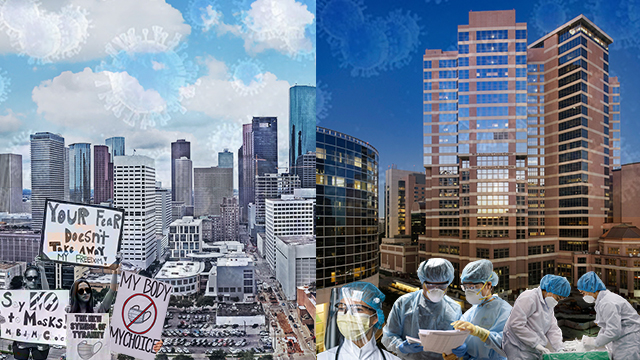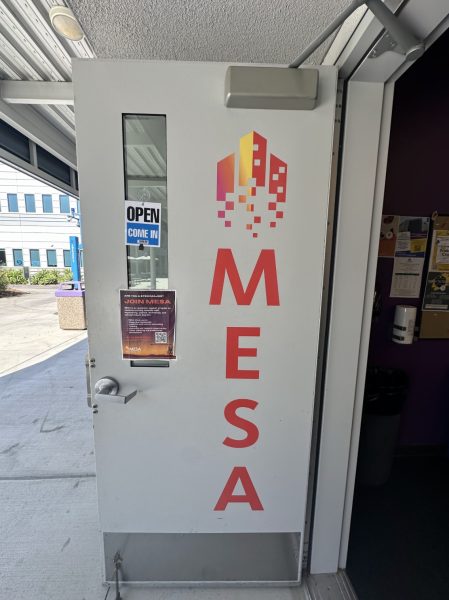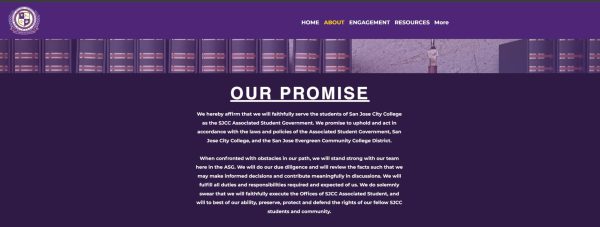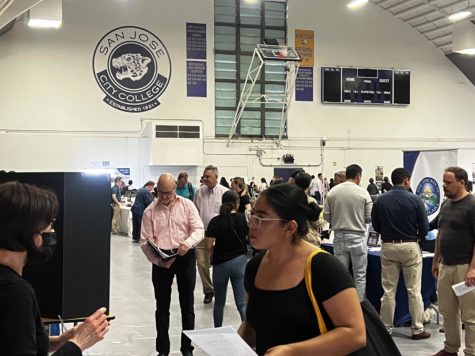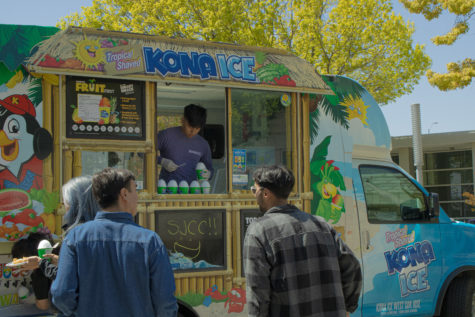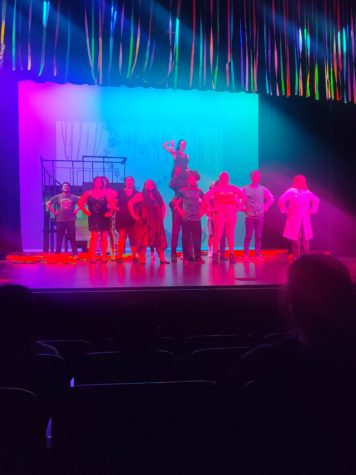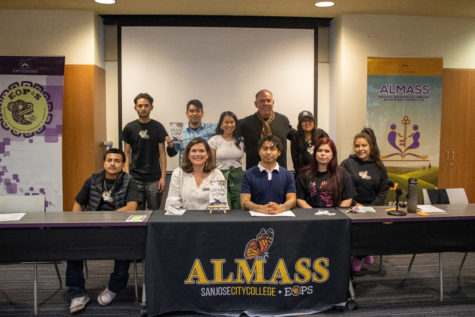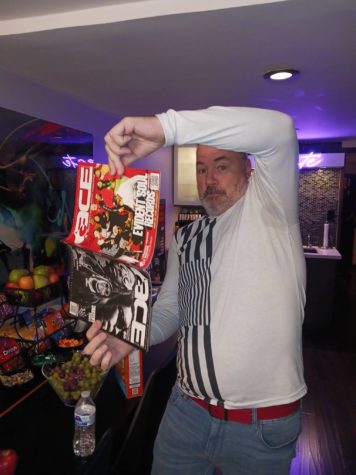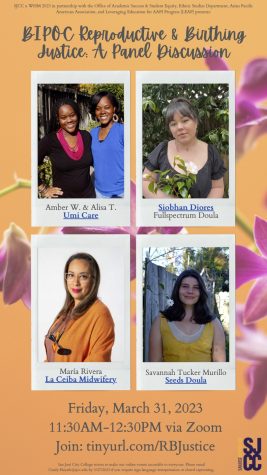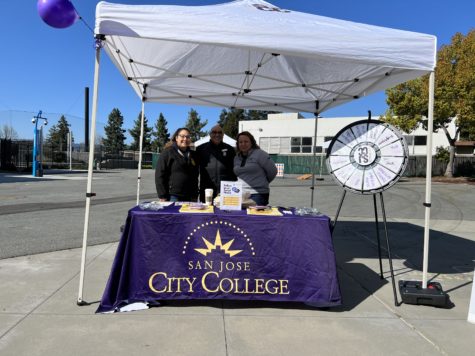Healthcare workers describe life during the pandemic
Many people do not believe they can become victims of the disease.
Graphic design by Dung Tran, Times Staff
The COVID-19 pandemic forces people to change their daily lives and adjust to a new normal. Most states in the U.S. have issued social distancing orders to reduce the spread of the virus, but some people still think that this is fake news.
On March 4, Fort Bend County Health and Human Services in Rosenberg, Texas, confirmed the first case of COVID-19. The patient was a 70-year-old man who just returned to Texas after traveling abroad and showed coronavirus symptoms. He was hospitalized at the time and tested positive for COVID-19.
“I have been going through many of the same things like my colleagues here,” said Priscilla Huynh, 50, a residency doctor who has been working at MD Anderson Cancer Center in Texas for 19 years. “The saddest thing is that many people don’t believe the virus is real. It’s like if you got an infection and didn’t take antibiotics, and the wrong logic has led to the destructive disaster.”
Huynh stressed the need for the public to wear masks.
“The first thing I did right away for my children was to teach them to wear a mask and practice hand hygiene and to tell them that social distancing is a new trend,” Huynh said. “We need to adapt to a new daily life such as training children to prepare their meals at home because doctors like us now often work more than 12 hours a day on emergency care.”
Huynh said that after long and stressful hours at work, she and her colleagues, together with some friends, formed a group of volunteers to help the community by cooking meals and making masks for free for the poor.
“This Pandemic will cause a lot of grief for many people,” Huynh said. “I have a family friend who died of COVID-19. I feel that life has many surprises, and anything can happen.”
Huynh said they had met at community events at the Vietnam Buddhist Center, and she looked young and healthy.
“She was infected with COVID-19 and died just a few days later,” Huynh said. “It’s disappointing and painful for families. Sadly, we were unable to attend funerals because of social distancing.”
Naomi Williams, 55, is employed as an in-patient pharmacist at MD Anderson. She has been practicing for over 30 years at this hospital.
“I don’t have any young children, but I help my 11-year-old niece with her school work at least twice a week,” Williams said. “I have seen her struggle manipulating the computer and tired of long days of isolation in front of a screen for online classes.”
Williams said that she lived alone and had to disconnect with her friends.
“The worst part of the pandemic has been social distancing and total elimination of my activities such as lunch and dinners with friends, and almost all social activities,” Williams said.
She said that she has not lost any family members or friends to COVID-19; however, it has considerably changed her life.
“I think we all had to get used to wearing a mask, sanitizing everything and washing our hands so much that they mimic crocodile skin,” Williams said. “I consider myself blessed. I have been healthy and have not suffered any loss of income.”
Williams said she volunteers at least one or two days a week with different groups by distributing food to those in need.
“It helps me feel like I’m doing something to help others that have not been so fortunate,” Williams said.
To Philip Onochie, 50, who has worked at MD Anderson for the past 20 years, COVID-19 has been a life changer.
“I have five kids, and my wife is a medical doctor who makes admissions as a Hospitalist at Memorial Hermann Northwest Hospital.”
“When the COVID pandemic became a significant factor in the U.S. over eight months ago, all five of our children stayed at home,” Onochie said. “Now we sometimes work from home and sometimes from the hospital.”
Onochie said everything about his pre-COVID life has changed. He said he stopped going to the numerous parties he used to go to every weekend in the Nigerian community: weddings, wake keepings, church-related activities and baby showers.
“My neighbor, whom I have known for 30 plus years since we were at Texas Southern University, lost her husband, who was also a friend from the same school, to COVID-19,” Onochie said. “He got the disease, and he had other underlying conditions like obesity and diabetes.”
Onochie said his neighbor was a lawyer who would meet with clients. He was wearing a mask in the meetings, but he was exposed to many clients every day.
“It was regrettable to lose a close friend like that, living around the corner from us, to this disease,” Onochie said. “We could not visit him in the hospital, and his family could not see him either — and it’s forever.”
Onochie referred to another virus case among his relatives — his cousin, a post-surgical nurse, who plays the role of a big sister for me.
“She caught COVID-19 and almost died in Atlanta, Georgia,” Onochie said. “It was evident that healthcare workers are the first to get the disease from patients coming into the hospital.”
Onochie said the hospital had quickly put in protocols to check every employee’s temperature every day for fever, which is considered the first visible symptom, and that they all wear masks all day long except in the break rooms while eating.
“There are other symptoms for this disease that are not so easy to spot,” Onochie said. “Working together in a hospital, it is clear we have to rely on each other to be as symptom-free and COVID-free as possible.”
Your donation will support the student journalists of San Jose City College. Your contribution will allow us to purchase equipment and cover our annual website hosting costs.

